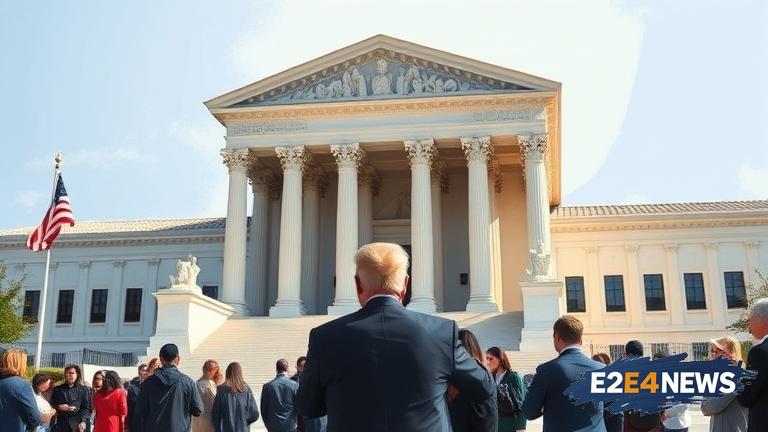The US Supreme Court has recently taken on a case that could potentially alter the structure of the Education Department, as proposed by the Trump administration. The plans, which were announced in 2020, aim to merge the Education Department with the Labor Department, creating a new entity that would oversee both education and workforce development. The proposal has been met with significant opposition from educators, lawmakers, and advocacy groups, who argue that it would undermine the Education Department’s ability to effectively address the unique needs of students and schools. The Supreme Court’s decision to hear the case has sparked widespread interest and concern, as it could have far-reaching implications for the country’s education system. The Trump administration has argued that the restructuring is necessary to streamline government operations and reduce bureaucracy, but critics contend that it would lead to a loss of focus on education and a lack of accountability. The case has also raised questions about the role of the federal government in education and the extent to which it should be involved in shaping education policy. The Education Department, which was established in 1979, has played a critical role in shaping education policy and providing funding for schools and programs. The department has also been responsible for enforcing federal education laws, such as the Individuals with Disabilities Education Act and the Every Student Succeeds Act. If the Supreme Court were to rule in favor of the Trump administration, it could lead to significant changes in the way that education is funded and regulated at the federal level. The decision could also have implications for the role of the Secretary of Education, who has played a key role in shaping education policy and advising the President on education matters. The case has sparked a heated debate about the importance of a standalone Education Department and the potential consequences of merging it with the Labor Department. Many educators and advocates have expressed concerns that the merger would lead to a lack of focus on education and a lack of accountability, as well as a potential loss of funding for critical education programs. The Supreme Court’s decision is expected to be closely watched, as it could have significant implications for the future of education in the United States. The case has also highlighted the ongoing debate about the role of the federal government in education and the extent to which it should be involved in shaping education policy. As the Supreme Court considers the case, educators, lawmakers, and advocacy groups are eagerly awaiting the decision, which could have far-reaching implications for the country’s education system. The Trump administration’s proposal has been met with significant opposition, and the Supreme Court’s decision will ultimately determine the fate of the Education Department and its role in shaping education policy. The case has also raised questions about the potential consequences of the merger, including the potential impact on students, schools, and communities. The Supreme Court’s decision is expected to be released in the coming months, and it will likely have significant implications for the future of education in the United States.
